#Cultural Diversity in Education
Explore tagged Tumblr posts
Text
Haven’t really been engaging with that much Genshin stuff because I’m so bummed about natlan…..
Like it all sucks, but speaking about something I have personal connection to:
I want to like Mualani (the white-hair, shark girl)….her name is from on a real Hawaiian chieftess, it’s also very close to my IRL name (Meilani)….also I freaking love sharks.
I want to be excited at cultural representation. But as an (admittedly white passing) mixed-Hawaiian myself—I’m just sad—not even at my palest in the midst of winter am I that pale. It feels like a betrayal to reference different cultures but not earnestly portray the people within.
Anyway, no hate to anyone who does like her, but please keep an open heart for your POC genshin friends or content creators who are sad and angry.
#they are pulling from diverse cultures for inspiration but then actively ignoring the peoples of these cultures.#at this point it’s not ignorant. it’s insulting#I’d almost rather they not engage with the culture at all rather than make a mockery of it.#I’d probably still be annoyed but not as mad if her name wasn’t DIRECTLY FROM HAWAII’S HISTORY????#also her white hair is fine#but I wish there was more texture/curl/or Hawaiian hair style in it#I’m not the most educated to talk on this#because I live on the mainland and most my hawaiian family has passed#so I my identity is largely made up of my physical feature and the childhood/teenage memories I have of the culture.#but it’s still a part of me that I cherish and try to maintain and I am so angry at Hoyoverse#genshin impact#genshin#natlan#hoyoverse#mihoyo#Mualani
32 notes
·
View notes
Text
Reveal, via Mother Jones:
Mike Hixenbaugh first knew things had changed when someone on a four-wheeler started ripping up his lawn after his wife placed a Black Lives Matter sign outside their home on the suburban outskirts of Houston. Hixenbaugh is an award-winning investigative reporter for NBC News. He’s covered wrongdoing within the child welfare system, safety lapses inside hospitals, and deadly failures in the US Navy. But when his front yard was torn apart in the summer of 2020 in the wake of the George Floyd protests, he saw a story about race and politics collide at his own front door. “They’re targeting us,” Hixenbaugh recalls. “My wife, my kids, me—and it’s about race.” So like any investigative journalist, he started investigating and soon discovered that “the ugliness of our national politics was really playing out at the most visceral level in these suburbs.” Hixenbaugh’s reporting about the growing divides in his neighborhood soon led him to the public schools, specifically those in Southlake, Texas, a suburb of Dallas where parents were engaged in heated, emotional battles over race, gender, DEI programs, and the role of public education in the US.
NBC News reporter Mike Hixenbaugh spoke to Reveal’s Al Letson about how public schools became ground zero for culture war battles on LGBTQ+, racial equity, and public health measures, among other issues.
See Also:
Reveal: How Public Schools Became Ground Zero for America’s Culture Wars
From the 04.29.2025 edition of Reveal's More To The Story With Al Letson:
#Schools#Education#Public School#Culture Wars#Critical Race Theory#Diversity Equity and Inclusion#Student Inclusion#LGBTQ+#Transgender#Mike Hixenbaugh#Reveal#More To The Story With Al Letson#Al Letson#Center for Investigative Reporting
5 notes
·
View notes
Text
UVA President Resigns Under Pressure—A Turning Point for Accountability in Higher Education
By Michael Phillips The resignation of University of Virginia (UVA) President Jim Ryan on June 27, 2025, is a watershed moment in the national debate over diversity, equity, and inclusion (DEI) in public higher education. Though critics are already spinning it as a chilling example of “federal overreach,” the truth is simpler and, for many, long overdue: Ryan refused to fully comply with the…
#academic freedom#Biden vs Trump#campus controversy#college leadership#conservative news#culture war#DEI#diversity equity inclusion#DOJ#education policy#federal pressure#Harmeet Dhillon#higher education reform#Jefferson Council#Jim Ryan#public universities#Trump administration#university governance#University of Virginia#UVA#UVA president resignation#virginia politics
3 notes
·
View notes
Text
This is a guest post by Jake Mackey, a professor of classics at a liberal arts college in California and co-founder of Free Black Thought. He has two prior guest posts here: Living by virtuous lies: On the "racism" of the SAT and White Doctors Kill Black Babies: Dubious Science and Anti-Racist Medicine (co-authored with David Gilbert).
-

[ Depicts a scene from Arthur Miller’s The Crucible, ostensibly about the Salem Witch Trials, but widely acknowledged as a metaphor for 1950s McCarthyism. Giles was accused of witchcraft but refused to plead either guilty or not guilty because his heirs could then be deprived of his considerable estate. As Giley is being pressed by the weight of massive stones, he is repeatedly urged to enter a plea. His response: “More weight.” It eventually killed him. Amusing side note, Lee writing here. I played Giles Corey in my high school play. ]
-
I am 53 years old. The last four years amount to the most repressive, totalitarian era I've ever lived through.
By: Jake Mackey
Published: Dec 18, 2024
Noam Dworman, host of the Comedy Cellar Podcast, put it this way: If—
“the general atmosphere of fear that we lived through as people who want to speak and live our lives freely—if all that change in American society had the fingerprints on it of a particular leader, that leader would be a fascist. If any leader had brought that change into our lives, that would be the most fascist experience with a leader we have ever seen in this country.”
But the author of all this change was not a particular leader. It was the left.
It was a society-wide culture of left-authoritarian intolerance, not a fascist leader, that made me watch my words like a hawk in my classroom for half a decade.
It was fear of retaliation from the left, not from a fascist leader, that caused me to lay awake at night on more occasions than I can count, terrified that a student might have misinterpreted something I said in class and initiated a cancelation campaign against me.

It was not a fascist leader but fear of intolerant leftists among my colleagues that made me censor myself, as a yet-untenured faculty member, when I was asked to report on my findings about the efficacy—which is nil or worse—of diversity training. It was fear of my leftist colleagues that made me bite my tongue and not speak out when I was asked to sign a statement containing a defamatory lie about a student who had in fact made hateful comments about Asians in a private text message, but had not, as we were asked to affirm with our signatures, threatened violence. (I did not sign, but shamefully I did not defend this vulnerable 19-year-old against faculty lies.)
It was not a fascist leader but fear of a pile-on from the left that compelled a colleague and me to humble ourselves before 18-year-olds with a public apology when a small group of students held our jointly taught class hostage for 30 minutes, tearfully accusing us of traumatizing them by showing a brief scene from a film about war, The Thin Red Line, in order to illustrate a point that St. Augustine makes in his Confessions about the evil in the human heart.
We later learned that the majority of the students had disagreed with their peers’ performative accusation of “harm” and had resented their hijacking of the class with transparently nonsensical accusations. However, the sensible majority of students were as terrified of their peers as we were, and of their peers’ capacity to destroy them for even imaginary infractions, and so they had held their tongues as the grotesque event unfolded. (Worth noting here: I think the vast majority of students, and faculty and administrators, too, are reasonable people who were intimidated into silence by socially distributed authoritarianism, just as I was, over the past years. More on this dynamic below.)
Nor were my colleague and I unique among faculty on my campus. No, it was not a fascist leader but fear of attack from the grassroots left that generated countless whispers among faculty in the halls of my college and others. Professors were afraid to tell any but their most trusted colleagues about how students had stood up in class to denounce them for ideological apostasy or to accuse them of "traumatizing" or "harming" them by teaching basic scientific facts. Professors were afraid to show a “triggering” image, or to fail to teach a given subject from the now-mandatory ideological perspective of Afropessimism. Professors were afraid to teach historical or literary material, unobjectionable until seemingly just the week before, that was now deemed inherently "white supremacist."
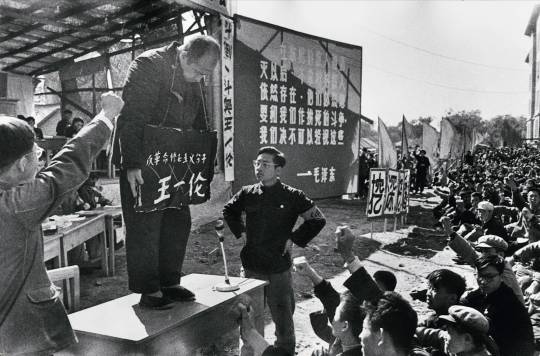
[ Maoist public shaming ]
It was not a fascist leader but a merciless socially distributed grassroots left-authoritarianism that led a senior administrator, a black man, to remark to a small group of us whom he trusted—
“I live in fear that if I say one wrong word, it will be the end of a 30-year career. I worry that I can’t protect my staff if any of them says one wrong word.”
It was not a fascist leader but a leftwing culture of retribution enacted by 18-year-olds—before which a department chair, tenured faculty, and college administrators cowered and averted their eyes—that ended the career of a colleague of mine because she read out loud the name of a character in an antiracist comic book. Yes, it was a classroom of first-year students—acting with the tacit complicity of an entire college staffed by cowards (whose cowardice was nonetheless rational)—that ended her career for reading a name in a comic book whose entire lesson centered on the evils of racism. They denounced her as a white supremacist in a way that her fledgling career as a professor, which had begun only one semester before, could never recover from.
Off campus, I know an artist whose career and business a left-authoritarian mob, not a fascist leader, attempted to destroy because he did not post a black square, signaling solidarity with BLM, on his company’s social media in 2020.
I know a musician who lost his band and music career merely for revealing that he was reading a book that had been effectively "banned" by a censorious left. His experience of repressive, totalitarian retribution came not from a fascist leader, but from a faceless, intolerant mob.
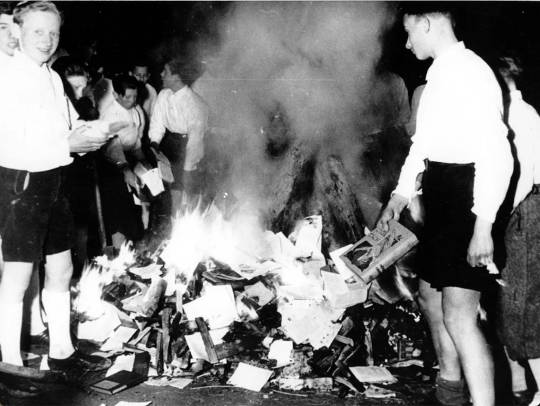
[ Nazi book burning ]
It was not a fascist leader but fear of a cancelation campaign from the left—as well as fear that many of my colleagues and college administrators would tacitly endorse the campaign out of their own fear of defending me—that led me to issue a groveling apology to a small group of students and faculty for bringing this same musician to my campus, along with Daryl Davis, a musician and anti-Klan activist who has done more to combat the most virulent forms of antiblack racism in America than perhaps anyone since the Civil Rights era, as part of a Foundation Against Intolerance and Racism (FAIR) panel discussion.
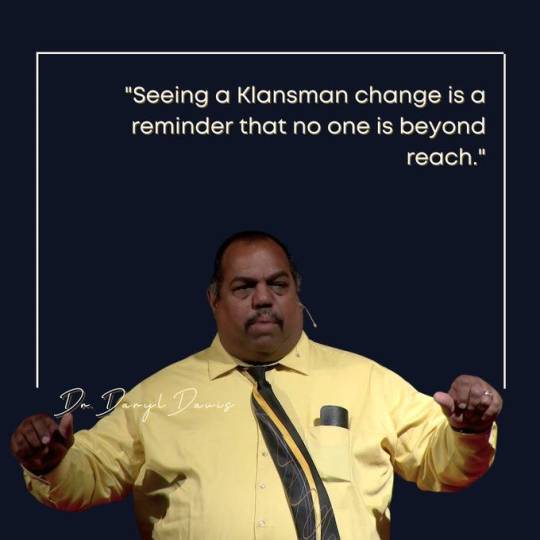
[ Lee here. Daryl Davis has, miraculously, by befriending them, gotten over 200 members of the KKK to abandon the group. When they do so, they donate their KKK robes & hoods to him, which he keeps as a kind of trophy. I really wanted to post an image of him with a reformed KKK member in full garb, but because of the very reasons outlined in Jake’s essay, I decided against it. You can follow Daryl on X (formerly Twitter) here and see for yourself; he posts those images regularly. ]
The two musicians got into a spirited but friendly disagreement about the value of BLM’s approach during the FAIR panel discussion. Afterwards, I heard from a senior colleague that some students and faculty who had been peripherally involved with bringing the panel to campus were mortified that their names might be associated with an event in which someone had said something critical of BLM, and that I would do well to issue an apology. Perhaps these students and faculty really could not countenance hearing criticism of BLM. More likely, I suspect, they were motivated by the same terror of cancelation and ostracism that I was. If their peers learned that they had had anything to do with a panel on which BLM was criticized by one of the speakers, they could face social or professional death on our small campus.
I have read of accomplished leaders in the world of arts and literature who lost their positions not because they criticized BLM but because the statement of solidarity with BLM that they published was not strident enough. I have read (and written) of physicians who lost important positions, were subjected to star chamber proceedings, and whose words were scrubbed from the internet merely for suggesting that socioeconomic conditions and not the unscientific construct of "implicit bias" were responsible for racial health disparities.
I have read of a liberal, gay Canadian educator, who had served children selflessly for decades, who was quite plausibly driven to suicide after being derided as a racist in front of an audience of 200 of his peers by a DEI trainer in a COVID-era “diversity” Zoom call.
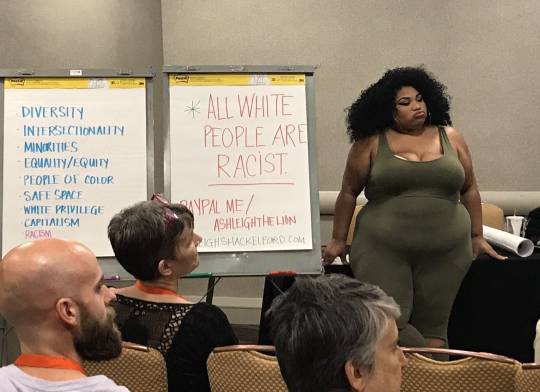
And I could go on. And on. And on. And on. And on. And I still wouldn’t have broached the repressiveness of our response to COVID, in which the government was involved, occasionally recruiting private citizens as instruments of repression!
Socially Distributed Authoritarianism: No Fascist Leader Needed
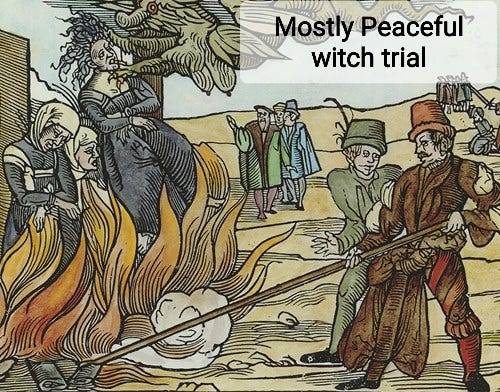
None of this repressiveness, this authoritarian intolerance, this insistence that only a single view was acceptable on pain of professional and social destruction—along with the fear that it all generated—was imposed by a fascist leader. No, it was imposed through the distributed channels of a small number of individual agents converging on an ideology that the vast majority of Americans found absurd, and on a set of repressive practices to enforce it on an unwilling populace. It was also imposed—and this is crucial—by the vast majority of individuals and institutions whose rationally self-interested fear of being subjected to these repressive practices made them turn their eyes away, allowing it to happen to those around them and tacitly endorsing it.
And I cannot but include myself in this indictment. So many of us, myself included, behaved like latter-day Peters, thrice denying the Jesuses of our colleagues, friends, and family in order to save our own skins by falsifying all our most dearly held preferences. My own cowardly failure, before 2022, when at last I got tenure and achieved a measure of security, to come to the aid of friends who were being unfairly scapegoated and professionally destroyed will forever be a source of shame for me.
John Stuart Mill, in his 1859 treatise On Liberty, noted that in cases such as I have described here, “society is itself the tyrant—society collectively over the separate individuals who compose it.” A collective tyrant of this sort—
practises a social tyranny more formidable than many kinds of political oppression, since, though not usually upheld by such extreme penalties, it leaves fewer means of escape, penetrating much more deeply into the details of life, and enslaving the soul itself.
The risk of lapsing into a “social tyranny,” Mill believed, warranted a kind of prophylaxis that even measures like the First Amendment cannot provide—
Protection…against the tyranny of the magistrate is not enough: there needs protection also against the tyranny of the prevailing opinion and feeling; against the tendency of society to impose, by other means than civil penalties, its own ideas and practices as rules of conduct on those who dissent from them; to fetter the development, and, if possible, prevent the formation, of any individuality not in harmony with its ways, and compel all characters to fashion themselves upon the model of its own.
The Tyranny of the Minority and the Spiral of Silence
Mill, it must be noted, is describing here a “tyranny of the majority,” whereas the “woke” social tyranny we have lately lived through and of which we are perhaps now breaking free may better be seen as a “tyranny of the minority.”
The economist Glenn Loury—writing in the Journal of Free Black Thought, the periodical of an organization some friends and I founded in 2020 to fight burgeoning woke racism and the tacit suppression in our public discourse of black viewpoint diversity—describes how a minority can exert tyrannical power over a majority:
German political scientist Elisabeth Noelle-Neumann coined a term that describes this phenomenon: the “Spiral of Silence.” In a spiral of silence, when holding a certain view entails a stigma, then, for fear of being seen as having that view, most people stay silent. Thus, the masses believe they are alone or in a small minority of people with the stigmatized view, when in fact they are indeed in the majority, one of the masses. In progressive-controlled areas of our society today, we are suffering from a spiral of silence…. [...] Though overt censorship is often spoken of as the leading threat to open discourse, the more subtle threat arises from the voluntary limitation of one’s own speech that creates a spiral of silence.
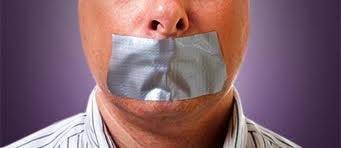
The spiral of silence, with its “voluntary limitation of one’s own speech,” is the dynamic by means of which a “woke” tiny minority (estimated to constitute a mere 8% of the population) succeeded in enforcing the social tyranny of the past few years.
Crucially, for the majority of us to have stayed silent all this time, we had to submit ourselves to self-surveillance and self-censorship. The terrorizing spectacle of sudden, arbitrary cancelations, played out on the internet and on campuses, served a panopticon-like function, assuring us that we are always being watched, always subject to discipline. As Foucault wrote in Discipline and Punish, “He who is subjected to a field of visibility, and who knows it”—
assumes responsibility for the constraints of power; he makes them play spontaneously upon himself; he inscribes in himself the power relation in which he simultaneously plays both roles; he becomes the principle of his own subjection. By this very fact, the external power may throw off its physical weight; it tends to the non-corporal; and, the more it approaches this limit, the more constant, profound and permanent are its effects: it is a perpetual victory that avoids any physical confrontation and which is always decided in advance.
Over the last few years, there was no need for a state apparatus of totalitarian control. Instead, each of us internalized the constraints on our speech and behavior that the “woke” wished to impose. Knowing that our own social media posts and others’ smartphone video recordings of us were always being uploaded to the “non-corporal” cloud, and in fear of personal and professional destruction, we self-monitored and self-regulated ourselves into a spiral of silence that left only extreme voices free to fill the void, until it came to seem like those were the only voices that had ever sounded.
Now, I would be remiss if I did not acknowledge that there was an entire class of people who genuinely never entered a spiral of silence, who never felt the need to falsify their preferences, who never experienced so much as a moment of fear of their neighbors, students, colleagues, or acquaintances, who sincerely never were discomfited by episodes of mob-led retribution and cancelation such as I've described here. My theory is that (1) some of these were people who worked and lived in places and occupations blessedly removed from the haunts of the knowledge-economy elites who spearhead “social justice” persecutions, so they simply didn’t encounter the phenomenon; (2) some of these were people who observed somewhat ruefully what was happening to their friends, colleagues, and neighbors, and felt, with a sigh, that it was unfortunate, but rationalized it as a few eggs getting broken in order to make a beautiful omelet of social justice; and finally (3) some of these were people whose own ideology so effortlessly mirrored that of the dominant social configuration that they simply never experienced a moment of cognitive friction.
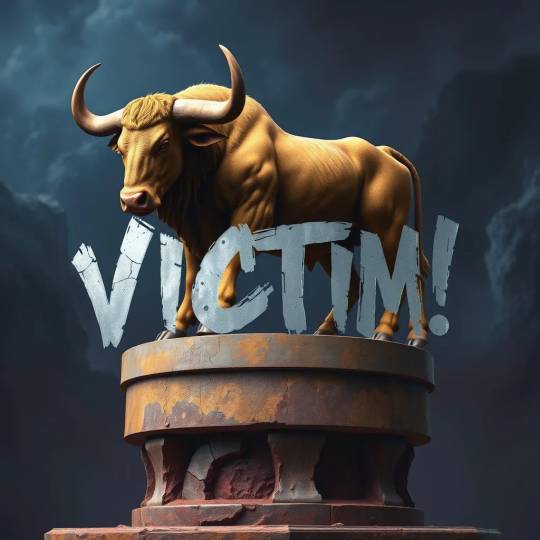
This latter group comprises the “woke,” whether narcissistic, sadistic, witch-hunting activists or merely complacent fellow travelers. I would posit that many people in this “woke” group have not, for the most part, antecedently and independently arrived at "woke" ideology on their own. The true fire of conversion and fanaticism burns in only a rare few. Rather, for most wokists, their minds are such as to spontaneously and uncritically conform themselves to whatever virtuous lie we are collectively supposed to believe or endorse in any given week—from abolishing slave-patrol policing in America, to mass graves of Indians in Canada, to human biology having no bearing on a person's sex or gender. This group has been, and appears to remain, in the grip of an ongoing mass delusion.
Moreover, this group is by and large the class of people that I fully expect to tell me in the comments that none of this ever happened or that I have fallen for a right-wing lie. Some of these people will also make a faulty inference from this essay and assume that I am a hardcore right-winger. In a classic case of the whataboutism fallacy, they will ask, Well, what about the Republicans?, and they'll accuse me of carrying water for a right wing that is supposedly far more repressive than any leftist or Democrat could ever aspire to be.

Even more incoherently, some people from this group will say that my supposed experience of intolerance (which they doubt ever really happened) is in any event exactly what a bigot should expect (and therefore it’s good that it happened). If I have views that it was impossible for me to express on campus over the past years, that is just and good, for their very rejection entails that my views must have been beyond the pale, and no campus is obliged to platform or tolerate Nazis and their ilk. On this view, people like those whose destruction I have chronicled here merely met with a social opprobrium that was symmetrical with their sins. Case closed.
These inferences and accusations are, of course, not only false but also logically fallacious, even if—alas—it has not been uncommon to hear them over the past 4 and more years. The simple truth is that I can be angry about left-wing repressiveness and still be plenty alarmed by right-wing repressiveness, as indeed I am. I have spoken out on Twitter/X against Florida's repression of speech, for example, and against the crushing of pro-Palestinian speech on some campuses, and just recently I shared my fear, which I think is not unfounded, that Trump may end up invoking the Insurrection Act.
Be all that as it may, there is simply no equivalency between the impact on my "lived experience" of the daily, grinding paranoia and fear that the leftist culture of repression and bullying has created in me and that I have seen it create in students and colleagues, and my more abstract and theoretical concerns about a repressive right, that is in any event far more distant from me because I am not obliged to go to or work in Florida or Texas. In contrast, the society-wide leftist culture of authoritarian tyranny that I have described here has been more or less ubiquitous.
I’m well aware that “wokeness” and its associated “cancel culture” kicked off in the 2010s and began to get really bad ten years ago, around 2015, but I have spoken here only of my own personal experience, which became untenable shortly before 2020.
Moreover, I am well aware that the excesses of the totalitarian left of the last few years can’t compete with the horrors of Mao’s Cultural Revolution, or Stalinism, or theocratic Islamism (all three of which, by the way, are embraced to one degree or another by the left). Accordingly, I have used “totalitarian” here not in its proper sense, as a system of authoritarian government, but in an extended sense, as a socially enforced leftwing regime of authoritarianism, an attempt by a vocal minority to exert total control over thoughts, speech, and action. The fact that the abuses perpetrated by American leftists against their freedom-loving fellow citizens over the last few years were not acts of a totalitarian government hardly entails that the era was some sort of picnic, and it is telling that people who grew up in totalitarian regimes have seen echoes of what they escaped in the “woke” regime.
Feel free to deny my account of the last 4 years, but I refuse to be gaslit about what I have experienced and seen.
I close with a parting shot from Nevline Nnaji, whose work we have shared and promoted in the Journal of Free Black Thought:
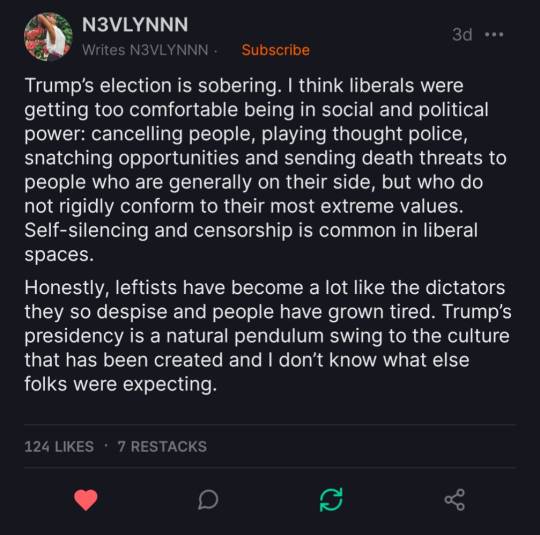
#Jake Mackey#Lee Jussim#authoritarianism#censorship#cancel culture#self censorship#woke#wokeness#cult of woke#wokeism#wokeness as religion#liberal society#liberal ethics#liberal values#classical liberalism#orwellian#critical race theory#diversity training#diversity equity and inclusion#DEI must die#elite colleges#higher education#corruption of education#academic corruption#religion is a mental illness
6 notes
·
View notes
Text
giving ilya my grandma's grammatical foibles, as well as her penchant for exchanging words for ones which are almost correct.
#it's the learning how to words from a culturally diverse collection of weirdos who were ALSO mostly educated on the road for survival#manages to hide it from the scions for.... longer than should have been possible#except tataru. tataru reads things for him.#can't tense for the life of him#xiv blogging#ch: ilya
4 notes
·
View notes
Text
𝗔𝗻𝘁𝗶-𝗜𝗻𝘁𝗲𝗹𝗹𝗲𝗰𝘁𝘂𝗮𝗹𝗶𝘀𝗺, 𝗖𝗼𝗹𝗹𝗲𝗰𝘁𝗶𝘃𝗶𝘀𝗺, 𝗮𝗻𝗱 𝘁𝗵𝗲 𝗘𝗿𝗮𝘀𝘂𝗿𝗲 𝗼𝗳 𝗖𝗼𝗴𝗻𝗶𝘁𝗶𝘃𝗲 𝗗𝗶𝘃𝗲𝗿𝘀𝗶𝘁𝘆 | How Modern Leftism and DEI Frameworks Marginalize Gifted Minds
#neurodivergent#autistic#humanrights#diversity#discrimination#disability#marginalized#egalitarian#equality#education#2egifted#2e#gifted#neurodiversity#ableism#DEI#twiceexceptional#neurodiverse#culture#tallpoppy#autism#hypocrisy
2 notes
·
View notes
Text
“A keen sense of what is demonstrably right and what is unambiguously wrong is an immutable requirement for effective leadership, so it is no surprise that the moral midgets in charge today are continuously slipping and sliding from one catastrophe to another—and dragging us along for the ride.”
#cancel culture#censorship#college#culture#democracy#diversity#education#elites#extremism#free speech#higher education#identity politics#leadership#morality#political correctness#protest#religión#social welfare#tolerance#save america
50 notes
·
View notes
Text
Discover Bangladesh: A Comprehensive Travel Guide
A Brief History of Bangladesh Bangladesh, located in South Asia, has a rich history that dates back to ancient times. The region was known as Bengal and was a significant cultural and commercial hub. Over the centuries, it saw the rise and fall of several dynasties, including the Maurya, Gupta, and Pala empires. Colonial Period In the late 16th century, the region came under Mughal rule, which…
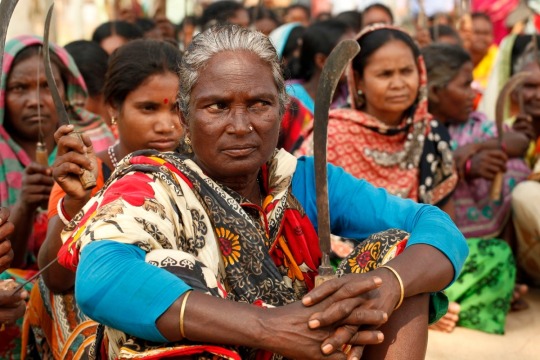
View On WordPress
#A Brief History of Bangladesh Bangladesh#adventure#africa#and a welcoming culture. Whether you&039;re exploring ancient ruins#and accommodation are inexpensive compared to many other countries#and Christianity. The country is known for its religious tolerance and cultural diversity. Food and Culture Bangladeshi cuisine is rich and#and domestic flights. 7. What should I wear in Bangladesh? Dress modestly#and major credit cards are accepted in urban areas#and modern trends#and Pala empires. Colonial Period In the late 16th century#and pitha (traditional cakes). The culture is a blend of ancient traditions#and the country is home to several reputable universities#and the Lawachara National Park. Rangamati: A scenic hill district known for its lakes#and the region became East Pakistan#Bangladesh achieved independence in 1971 following a brutal liberation war. Since then#breathable clothing is advisable due to the tropical climate. 8. Can I use credit cards in Bangladesh? Credit cards are accepted in major ci#Buddhism#but English is widely understood in urban areas and among the educated population. 6. What are the main transportation options within the co#but it&039;s wise to carry cash#but there are extensive bus and train networks for intercity travel. Religion The predominant religion in Bangladesh is Islam#colonial influences#dance#destinations#especially in cities#especially in rural areas and religious sites. Light#especially in rural regions. Conclusion Bangladesh is a vibrant and diverse destination with a rich history#europe#followed by Hinduism#Gupta#has a rich history that dates back to ancient times. The region was known as Bengal and was a significant cultural and commercial hub. Over
2 notes
·
View notes
Text
Exploring Universal Values
Universal values are principles and beliefs that are commonly regarded as fundamental and applicable across various cultures and societies. While there may be variations in the way these values are expressed or emphasized in different cultures, they generally serve as a foundation for shared ethical and moral standards. Some universal values include:
Compassion: The value of compassion involves showing kindness, empathy, and concern for the suffering or well-being of others. It is a fundamental value in many religions and ethical systems.
Justice: Justice entails treating individuals fairly and impartially, upholding their rights, and ensuring that they receive what they deserve. It is a cornerstone of legal systems worldwide.
Equality: Equality emphasizes the principle that all individuals, regardless of their background, should have equal opportunities, rights, and treatment. It is a core value in the pursuit of social justice.
Freedom: Freedom encompasses the idea that individuals should have the right to make choices, express themselves, and live without undue restrictions, as long as it does not harm others. It's a key value in democratic societies.
Honesty: Honesty involves being truthful and transparent in one's actions, words, and intentions. It forms the basis for trust and integrity in personal and professional relationships.
Respect: Respect entails treating others with consideration, dignity, and acknowledgment of their worth as individuals. It underpins healthy interpersonal relationships.
Dignity: Dignity is the inherent worth and value of each person, regardless of their circumstances. It involves recognizing and upholding the humanity of others.
Tolerance: Tolerance is the acceptance and respect of differences in beliefs, cultures, and lifestyles. It promotes peaceful coexistence and understanding among diverse groups.
Empathy: Empathy involves the ability to understand and share the feelings of others. It fosters compassion and effective communication in relationships.
Responsibility: Responsibility means taking ownership of one's actions and decisions, being accountable for their consequences, and fulfilling one's obligations to others and society.
Cooperation: Cooperation emphasizes working together collaboratively to achieve common goals. It is essential for social, economic, and political progress.
Environmental Stewardship: Recognizing the importance of protecting the environment for current and future generations is becoming increasingly important as a universal value. It involves responsible and sustainable use of natural resources.
Peace: Peace involves the absence of conflict, violence, and war. It is a fundamental value for the well-being and prosperity of societies.
Solidarity: Solidarity emphasizes mutual support and unity among individuals and communities, especially in times of hardship or adversity.
Education: Access to education and the pursuit of knowledge are universal values that empower individuals and contribute to personal and societal development.
These universal values provide a framework for ethical behavior, social harmony, and human rights. While the interpretation and application of these values may vary, they serve as guiding principles for creating a more just, compassionate, and equitable world.
#philosophy#epistemology#knowledge#learning#education#chatgpt#ethics#psychology#Universal Values#Moral Principles#Human Rights#Cultural Diversity#Compassion#Justice#Equality#Freedom#Honesty#Respect#Tolerance#Empathy#Responsibility#Cooperation#Peace#Solidarity#Environmental Stewardship
10 notes
·
View notes
Text
International Workers' Day.
May Day’s Call for Solidarity, Empowerment Advocacy and Global Impact May Day, also known as International Workers’ Day or Labour Day, is observed on May 1st in numerous countries, unifying a diverse tapestry of individuals under the banner of workers’ rights and social and economic achievements. It represents a day of remembrance for labor movement milestones, notably the fight for the…

View On WordPress
#Advocacy#Collaboration#Cultural Heritage#Diversity#Education#Empowerment#Global Impact#International Workers&039; Day#Labour Day#May Day#Resilience#Social Justice#Solidarity#Unity#Workers&039; Rights
2 notes
·
View notes
Text
The Symbolism and Evolution of the Union Jack
Unraveling the Colors The Union Jack, the distinctive flag of the United Kingdom, serves as a vibrant tapestry woven with historical significance and symbolic depth. Comprised of the crosses of St. George, St. Andrew, and St. Patrick, this iconic design encapsulates the unity and shared history of the nations within the United Kingdom. Let’s embark on a comprehensive exploration of the…
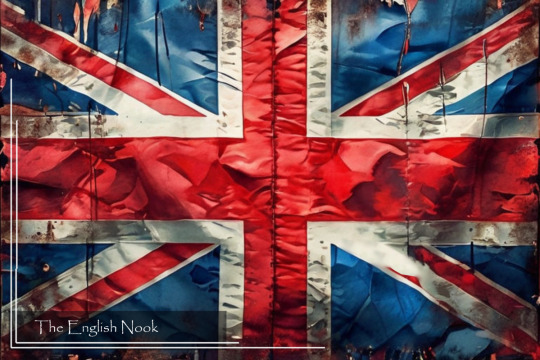
View On WordPress
#British history#British symbolism#Cultural heritage#Diversity and unity#education#Emblem of unity#english-language#english-learning#Global influence#Historical evolution#inglés#language#language-learning#languages#learn-english#learning#National identity#National pride#Patriotic symbolism#St. Andrew&039;s Cross#St. George&039;s Cross#St. Patrick&039;s Cross#Union Jack#United Kingdom flag
2 notes
·
View notes
Text
and it goes without saying that the state of art history/visual culture video essay youtube is a bit dire. in that it like, doesnt exist outside of a few one off videos by general youtubers, decade old recordings of lectures, and random short text to speech videos that are likely ai generated
#we know the wonderful jacob geller whos afraid of red yellow and blue essay#and drapetomania is really fantastic especiall on the visual culture side of things especially with race#(which is one of my biggest personal areas of interest so i might be biased LOL but someone has to be biased about this)#(unrelated but sometimes im in my art history classes which. while in recent years have become slightly more diverse)#(still lean quite white and like. they do their best. theyre willing to listen. but theres a lot of blindspots)#(so the least i can do is be really loud and mixed race in class HDJKFKDF)#but its rough if someone wants some to know more of the beginner stuff. like more accessible for some of the basics#like not just the basics of the theory aspects (although that is important) but also like the basics of the history aspects#hell i have a lot of blindspots with certain eras and movements. dont ask me about medieval art i dont know like anything 😔#i dunno i think theres a gap in educational focused youtube that could be filled? it could be fun#not by me though i cant read a script for shit LOL if u want the bmpmp3 art history video essay then find me irl in a museum and ask me a#question and i will give you my entire bachelors degree in the next hour or two. like nature intended for us art history majors
2 notes
·
View notes
Text
Harnessing Harmony: A Day in Our Afro-Boho Homeschooling Life
Introduction: Greetings, beautiful community! It’s your homegirl, Reiki Ra-ess, here to bring a sprinkle of sunshine and wisdom into your day. As a steadfast advocate for education that resonates with our roots and rhythm, I’m thrilled to unveil a daily tool that’s been a labor of love and learning in our household for over a decade– our Afro-Boho inspired Daily Worksheet. Harmony in…

View On WordPress
#Afro-Boho homeschooling#Afrocentric educational activities#Ancestral wisdom in education#Breaking generational curses through homeschooling#Building generational knowledge in homeschool#Chakra-based learning for kids#Cultural homeschool curriculum#Customizable homeschooling templates#Daily homeschool worksheets#Educational worksheets for diverse families#Empowering homeschool lesson plans#Heritage-centered teaching materials#Holistic education printables#Homeschool organization and planning#Homeschooling for black families#Homeschooling with fibromyalgia#Integrating astrology in education#Melaninated homeschool resources#Mindful parenting and education#Yoga and mindfulness for students
2 notes
·
View notes
Text
“Political power, the Communist Chinese leader Mao Zedong once stated, grows out of the barrel of a gun; today this power results from sustained, cruel, and vociferous character assassination.”
#cancel culture#censorship#civility#culture#culture war#democracy#diversity#education#extremism#fear#fear mongering#free speech#freedom of speech#higher education#leadership#patriotism#political polarization#politics#protest#respect#teaching#voter anger#save our nation#save america
8 notes
·
View notes
Text
Beyond Just Hand Gestures
Discover the vibrant world of Deaf culture and the rich language of sign language in our latest post, a journey into the heart of a unique and diverse community.
Exploring the Depths of Sign Language Introduction The Multidimensional Nature of Sign Language Hand Gestures: The Foundation Facial Expressions: The Emotional Context Body Language: The Supporting Pillar The Diversity of Sign Languages The Role of Culture in Sign Language Technology and Sign Language Conclusion Summary Further Reading Book Recommendations Featured…

View On WordPress
#Accessibility#American Sign Language (ASL)#Behavioral Norms#Communication Rights#Community Engagement#Cultural Identity#Cultural Values#Deaf Community#Deaf Culture#Deaf History#Educational Resources#Human Rights#Inclusion#Inclusivity in Society#language preservation#linguistic diversity#Non-Verbal Communication#Sign Language#Social Norms#Visual Language
2 notes
·
View notes
Text
Just learned that Claudine Gay was forced to resign at Harvard after initially weathering the backlash to her Congressional testimony last month. I’m stunned, because I thought if any institution in this country I call the Union States of America could withstand the new McCarthyism masquerading as anti-anti-Semitism, it’d be Harvard. (And please note I’m inaugurating a new era for this Tumblr, making my own statements after collecting all the others—that is, others’.)
And while it’s highly ironic that a Black woman such as Gay should be charged with “inadequate citation,” it’s also unfortunate that she apparently did indeed omit some quotation marks in her early work. I’m no Gay, of course, but that’s why I was fanatical about zero-error attribution in my own scholarship and teaching. I guess this is because I was a journalist prior to entering academia, and specifically a factchecker at the beginning of my editorial career; I knew writers and publications could get sued for such mistakes (and were).
Anyway, speaking about lawsuits: the recent DEI SCOTUS case that Harvard had a role in was also at play here, per Nia T. Evans at Mother Jones.
#harvard#antisemitism#claudine gay#israel#palestine#higher education#diversity#cultural studies#citation#right wing politics#right wing media#black women#misogynoir
4 notes
·
View notes